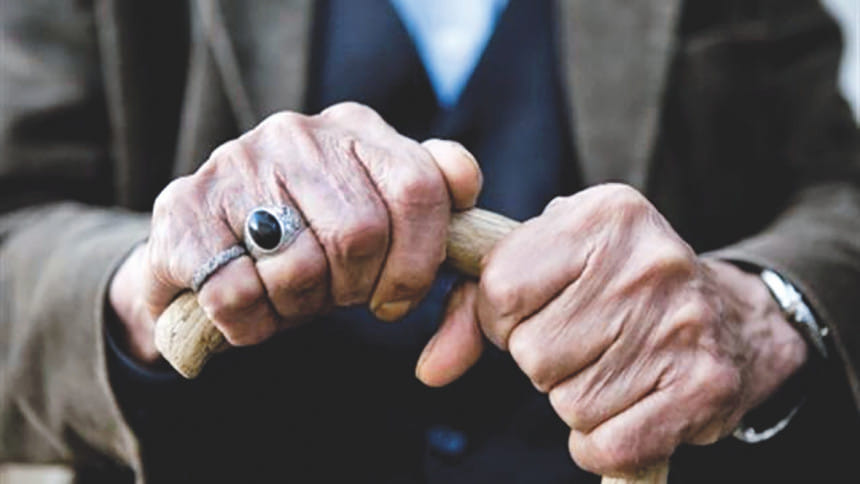Staying healthy in old age

Persons aged 60 years and above are considered as senior citizens. Various statistics show that the number of elderly population in Bangladesh is approximately 13 million which represents 8 percent of the total population and the average life expectancy is about 72 years.
The elderly should appear clean and well groomed. Failure to bathe, brush teeth or wear clean clothes indicate an inability to keep up with daily routine. This may be due to physical weakness, dementia or just depression. They may also be absent-minded, like leaving things on the stove and forgetting about them. These are danger signs indicating that care is required.
Make sure the lighting in the house is bright, especially in the living room and bathrooms. Narrow staircases and slippery front steps are also difficult to navigate. Banisters are essential. Supporting bars need to be embedded near the toilet and bathing areas. High commode in toilets is mandatory, otherwise the chances of accidental falls and fractures are greater.
Good nutrition is essential for immunity and strong muscle to prevent falls. To monitor nutrition, keep an eye on the weight, the quality of skin, hair and nails. Older adults may suffer from malnutrition even when they can financially afford an adequate diet. Medications, illness or a recent hospitalisation may dull taste and reduce the appetite. Diet restrictions (on salt, sugar, oil, fluid and spices) owing to diseases may make the food unappetising and inadvertently limit intake. Social isolation and depression can also lead to people eating less.
We all have memory lapses and these are greater and more frequent with increasing age. Memory loss is abnormal if it extends to names of close relatives (children, grandchildren, nieces and nephews), the way to the neighborhood shop or dosages of regular medications. Medical evaluation is required at this point.
Lifestyle changes and chronic diseases occur with ageing. It is important that all medical details and prescriptions are filed chronologically. This should then be placed in an accessible place. Medical checkups and visits to the doctors should be scheduled regularly. Medical containers should be neatly labelled. If tablets are in strips, the person should be able to distinguish one medicine from another. Some medications may look very similar and it is possible to make disastrous and life-threatening mistakes.
Hearing and eyesight should be checked regularly and timely corrective measures to be taken. Hearing loss and partial loss of eyesight leads to dependency and feelings of social isolation. Cataract surgery and hearing aids often are lifesavers.
Sleep disturbances are common in older adults. In some individuals, it may be because of Alzheimer's, when the sleep-wake cycle is disturbed, leading to daytime drowsiness and night-time restlessness. In many others, it may be because of medications, snoring (obstructive sleep apnoea), restless legs or just depression.
Good sleep can be promoted with exposure to bright sunlight in the morning; restricting or decreasing the intake of caffeine (tea or coffee); adjusting medication with the help of the doctor so that any tablets with a stimulatory effect are taken in the morning and medically treat any diseases that might interfere with normal sleep.
Physical activity for at least an hour a day should be encouraged. Walking will help with appetite, lifestyle diseases, depression, dementia and sleep disturbances. It helps to control diabetes. It will also entail some social activity as they will meet other people.
A little extra effort will pay off in the long run to make old age hassle free for everyone, both the elderly and the young adult.
The writer is a gerontologist and a public health specialist.
E-mail: [email protected]

 For all latest news, follow The Daily Star's Google News channel.
For all latest news, follow The Daily Star's Google News channel. 



Comments